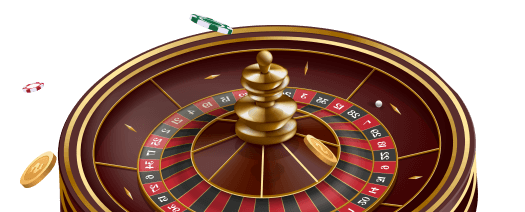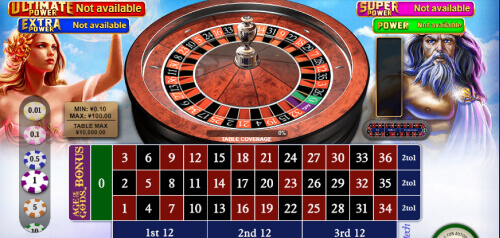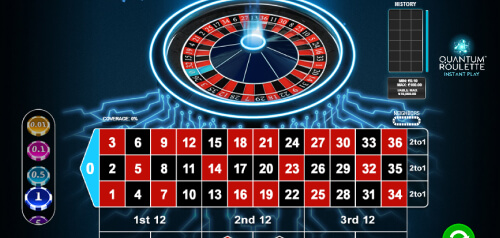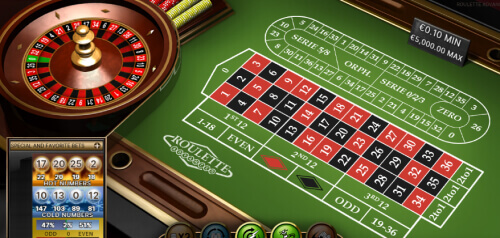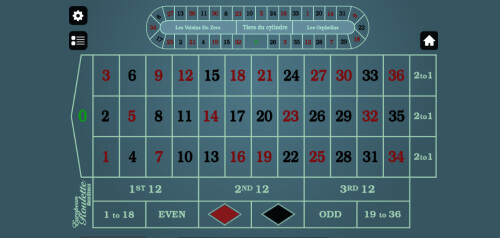Roulette Guide for Novices
This comprehensive guide aims to familiarize newcomers with the purpose and fundamental rules of roulette. We will provide a step-by-step explanation of how to play the game, discuss the primary roulette variants, and address frequently asked questions regarding this timeless casino game.
Objective of the Game
The objective of roulette is to predict the number or color on which the ball will land when the roulette wheel is spun. The wheel consists of numbers from 0 to 36, represented by black, red, and green colors. Players can place bets on a single number, a range of numbers, or even on specific colors (black/red) or odd/even outcomes. Each of these outcomes carries different probabilities, determining the corresponding chances of winning and the resulting payouts.
- Step-by-step-algoritm
- How to bet
- How to calculate payouts
- Roulette Variations
- La partage, en prison, surrender
- FAQ
Playing Roulette: Step-by-Step Instructions
Understanding the game of roulette involves dividing it into four distinct phases. The game begins with players placing their bets and progresses as the croupier spins the wheel. Payouts are made to winning players after the outcome is announced. Both winners and non-winners can continue to test their luck in subsequent games.
Step 1: Making Your Wager
Placing a bet in the realm of online roulette generally follows a straightforward process, albeit with minor variations depending on the specific online casino platform. Below is a comprehensive guide detailing how to make a bet in online roulette:
- Determine Your Betting Amount: Prior to placing your bet, determine the amount you wish to wager. Online casinos typically set the minimum roulette bet between $0.10 and $1, while the maximum bet can vary significantly, often reaching several thousand dollars or more, contingent upon table constraints and the casino's individual policies.
- Choose Your Wager Type: Select the category of bet you wish to make. Within roulette, there exists a variety of betting options, including:
- Internal bets: Wagering on specific numbers or small clusters of numbers.
- External bets: Betting on broader numerical groupings like red or black, odd or even, or columns.
- Announced bets: Certain online roulette variants provide unique betting options such as neighbors, voisins, orphans, and more.
- Position Your Chips: After determining your bet type and amount, proceed to position your chips on the digital roulette table. In online roulette, this is commonly executed by clicking on the appropriate region within the betting interface.
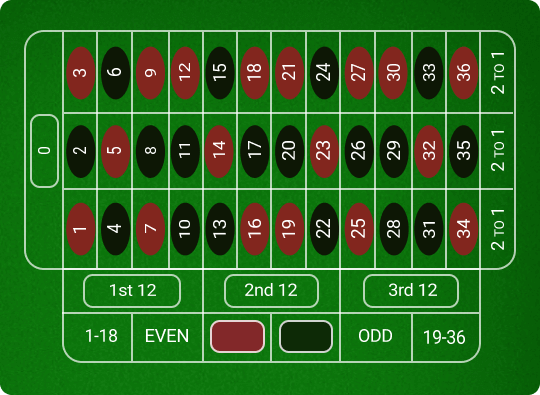
Announced Bets
For certain bets known as "French bets," players can place their wagers more efficiently without physically moving their chips. If there are enough chips on the table, players can verbally inform the croupier of their desired bet. The croupier verifies the bet by examining the table and, even if the chips are not placed directly on the corresponding bet option, accepts the wager. These bets are called "announced bets" as they are announced by both the player and the croupier. It is important to note that when playing online roulette, an announced bet must still be accompanied by placing a chip on one of the bet sections on the racetrack. The following are the main types of announced bets, along with detailed information about each one.
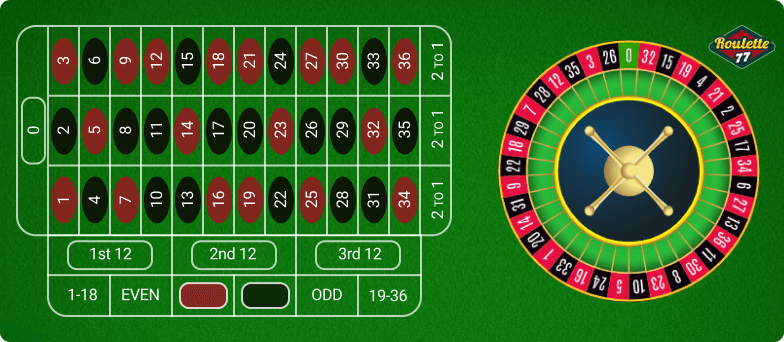
Table and Bet Limits
Every roulette table has its own minimum and maximum bet limits, which may vary. The minimum bet represents the required amount to participate in the game, regardless of the specific bet option. On the other hand, the maximum bet indicates the highest amount accepted for any bet at that table. It is essential for players to consider these limits for two reasons. Firstly, table limits help determine if a particular game aligns with their preferences and bankroll. Secondly, these limits play a crucial role in implementing various roulette strategies. For instance, progressive betting strategies like the Martingale system require playing at tables with high maximum limits, as the bet amount needs to increase according to specific rules.
In addition to table limits, individual bet types may also have their own limits, often associated with maximum betting amounts. For example, a roulette table might have a minimum bet of 10 CAD and a maximum bet of 5000 CAD. However, this does not imply that players can place any bet within this range. Outside bets (red/black, odd/even) can be made between 10 CAD and 5000 CAD. Conversely, inside bets (Straight-up, Split, etc.) may be subject to a lower maximum bet limit, such as 2000 CAD, despite the overall table limit being 5000 CAD.
The table below provides a comparison of betting limits found in popular roulette games from different providers.
| Dragon Jackpot Roulette | Relax Roulette | |||
|---|---|---|---|---|
| Bet | Min | Max | Min | Max |
| Straight up | 0.1 | 100 | 0.1 | 250 |
| Split | 0.1 | 200 | 0.1 | 500 |
| Street | 0.1 | 300 | 0.1 | 800 |
| Corner | 0.1 | 400 | 0.1 | 1000 |
| Six Line | 0.1 | 600 | 0.1 | 1600 |
| Column | 1 | 1000 | 0.1 | 3500 |
| Dozen | 1 | 1000 | 0.1 | 3500 |
| Even/Odd | 1 | 1000 | 0.1 | 5000 |
| Red/Black | 1 | 1000 | 0.1 | 5000 |
| High/Low | 1 | 1000 | 0.1 | 5000 |
Step 2: Let the Wheel Spin!
In the realm of online casino roulette, initiating the "Spin" action ignites the game's random number generator, thereby dictating the outcome. The digital roulette wheel elegantly rotates on the screen, revealing the winning number and its associated color. Through its automated efficiency, the system promptly dispenses winnings in adherence to predetermined rules, ensuring players relish a seamless digital gaming experience.
In contrast, live roulette introduces a captivating dimension to the "Spin" phase, offering a real-time, live-streamed encounter with a physical dealer. Upon players' request, the dealer manually spins the roulette wheel, and the ball's trajectory follows the laws of physics. Enhanced by high-definition video streaming, players are immersed in the unfolding excitement, engaging in an interactive ambiance reminiscent of a traditional casino setting. The ultimate outcome hinges on the ball's placement within a numbered pocket, delivering an authentic gaming experience in the online sphere.
Step 3: Waiting for the Results
Once the wheel comes to a stop, the croupier announces the number and color on which the ball has landed. This marks the start of the third phase: payouts. Players who bet on the winning outcome receive their payouts based on the bet amount and the corresponding payout ratio. For instance, a straight bet pays 35:1. Therefore, a 10 CAD bet would result in a 350 CAD payout (10 x 35).
| Bet | Payout | Example (initial bet $10) |
|---|---|---|
| Straight up | 35:1 | 10+35*10=360 |
| Split | 17:1 | 10+17*10=180 |
| Street | 11:1 | 10+11*10=120 |
| Corner | 8:1 | 10+8*10=90 |
| 5 numbers | 6:1 | 10+6*10=70 |
| Six Line | 5:1 | 10+5*10=60 |
| Column | 2:1 | 10+2*10=30 |
| Dozen | 2:1 | 10+2*10=30 |
| Even/Odd | 1:1 | 10+1*10=20 |
| Red/Black | 1:1 | 10+1*10=20 |
| High/Low | 1:1 | 10+1*10=20 |
It is also possible to place combined bets in roulette. In such cases, the payout is calculated based on the total amount wagered.
- bet 100 on black wins, you get 100*1 + 100 = 200
- 5 on corner (7,8,10,11) wins, you get 5*8 + 5 = 45
- 25 on six line does not win
- 5 on corner (23,24,26,27) does not win
- bet 100 on black wins, you get 100*1 + 100 = 200
- 5 on corner (7,8,10,11) wins, you get 5*8 + 5 = 45
- 25 on six line wins, you get 25*5 + 25 = 150
- 5 on corner (23,24,26,27) does not win
- bet 100 on black does not win
- 5 on corner (7,8,10,11) does not win
- 5 on corner (7,8,10,11) does not win
- 5 on corner (23,24,26,27) wins, you get 5*8 + 5=45
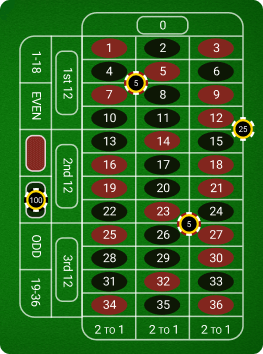
Step 4: Continuing to the Next Round
The completion of payouts signifies the end of the game. The croupier then initiates a new game and begins accepting new bets. This process continues until the croupier announces "no more bets" once again, and the cycle repeats. Players who won or lost in the previous game are free to participate in the subsequent round or choose to abstain.
Fundamental Game Variants
In the world of roulette, grasping the disparities between European, American, and French iterations is pivotal for players aiming to optimize their chances of winning.
-
European Roulette
- House edge 2,7%
- 37 numbers
- One zero

-
American Roulette
- House edge 5.26%
- 38 numbers
- Additional double zero
- Surrender rule may apply
- 5 number bet ("Basket") available

-
French Roulette
- House edge 1.35%
- 37 numbers, one zero
- "La partage" and "En prison" avilable
- French writing on the table

European roulette stands apart with its single zero pocket, resulting in a reduced house edge in contrast to its American counterpart, which incorporates an additional double zero pocket. This variance in zero pockets significantly impacts the game's odds, with European roulette offering superior prospects for players.
Furthermore, French roulette introduces unique stipulations like La Partage and En Prison, further minimizing the house edge and amplifying the player's advantage.
Hence, opting for European or French roulette variations presents players with the greatest potential for success due to their diminished house edges and advantageous regulations.
Additional Betting Rules
The French and American variants of roulette employ distinct betting rules that differ from the European variant. These rules do not alter the available betting options or payouts but rather reduce the house edge, enabling players to increase their long-term winnings.
-
Surrender Rule
This rule is unique to the American variant. If a player bets on 0 and 00 and loses, they receive half of their bet back. Similar to La Partage, this rule only applies to bets on 0 and 00. By implementing the surrender rule, the house edge can be reduced to 2.63%.
-
En Prison Rule
This rule is also exclusive to the French variant. If a player places a 1:1 bet and loses, the bet carries over to the next round. If the bet loses again, there is no refund. However, if it wins, the initial bet must be paid.
-
La Partage Rule
This rule is exclusive to the French variant. When a player places a 1:1 bet (red/black, odd/even, low/high) and loses, they receive half of their bet back. By implementing this rule, the house edge can decrease to as low as 1.35%.
Proven Roulette Strategies
Discover indispensable strategies below to circumvent common pitfalls when delving into online roulette. These strategies will enable you to navigate the virtual roulette domain with assurance and gratification. Let's explore!
- Effective Bankroll Management To minimize losses, it's essential to manage your bankroll astutely. Set a budget for your online roulette endeavors and adhere to it steadfastly, resisting the temptation to chase losses or surpass your financial constraints.
- Avoid Chasing Losses Acknowledge that losses are an inherent component of the game and resist the impulse to pursue them. Instead, focus on savoring the gaming experience and engaging in responsible gameplay.
- Incorporate Regular Breaks Incorporate periodic breaks into your online roulette sessions to rejuvenate your mind and sustain concentration.
- Comprehend Different Game Variants Grasp the rules and intricacies of various online roulette variations to make informed decisions and sidestep confusion during gameplay.
FAQs
The house edge represents the percentage of profit the casino is expected to make from players' bets. For example, the house edge of European roulette is 2.70%, indicating that the casino will earn a profit of 2.70 CAD for every 100 CAD wagered.
In roulette, each bet type has a predetermined payout. Therefore, when a player wins, their wager is multiplied by the corresponding payout. For instance, a column bet pays 2:1. If you wagered 10 CAD and won, you would receive 20 CAD (10 x 2).
RTP stands for Return to Player, which denotes the percentage of invested funds that players can expect to recover over the long run. For instance, the RTP of European roulette is 97.30%, meaning that for every 100 CAD wagered, you can expect to win back 97.30 CAD.
The most profitable variation in the long run is the one with the lowest house edge, as it reduces the potential for losses. In this context, French roulette, which implements the La Partage rule, offers the most profitable option with a house edge of 1.35%.
Cold numbers are those that have not been selected for a significant period, while hot numbers are frequently chosen. For example, if 'red 7' has appeared twice in the last 10 spins, it would be considered a hot number.
Even money bets refer to bets that pay out at a 1:1 ratio. For instance, if you wager 1 CAD and win, the payout will also be 1 CAD. In roulette, even money bets include red/black, odd/even, and low/high. These bets offer the highest chances of winning.
The number 0 is the only green number on the roulette wheel. Players can place bets on this number, and a straight bet on 0 pays out at 35:1, just like any other straight bet.
Was this page helpful?
Thanks, we appreciate your reply!
Sorry for the inconvenience
Please tell us how this article could be improved



